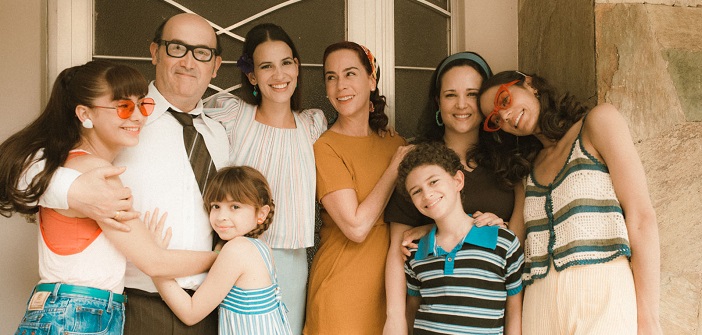In the Colombia of the 1970s-80s, consumed by poverty, the violence of armed groups, and the corruption of the army and politicians, an upright man, a doctor by profession and a professor, Hector Abad Gomez (1921 – August 25, 1987) works to improve the sanitation of the most underprivileged neighborhoods, analyzes the water, and attempts to combat the proliferation of bacteria. An endeavor that naturally leads him from the medical to the political field, even aspiring to run for the municipal elections in Medellín. But one never gets involved without consequences in countries where violence rules the world.
Having become a writer, and almost thirty years after the sacrificial death of this heroized father, his only son, Hector Abad Faciolince, whose childhood was surrounded by the sweet chirping of his five sisters, dedicates a fictionalized biography to this generous and guiding figure, “The Oblivion We Shall Be” (2006), which has met with great success.
It is this text that, in 2020, between scrupulous fidelity and measured boldness, Spanish director Fernando Trueba, assisted by his own son David Trueba for the screenplay, eventually agrees to adapt for the cinema, while retaining its title, which echoes the opening line of a sonnet by Borges, “Aquí, hoy.” Javier Cámara, often seen in Almodóvar’s films, plays the role of this father as passionately devoted to his family as to his ideals. Nicolás Reyes Cano and Juan Pablo Urrego portray the loving son, first as a child and then as a young adult.
Fernando Trueba fully embraces his desire to promote, for once in cinema, a positive hero, rather than a dangerously provocative character exerting a troubling allure, as in many American films. In a choice of filming as apparently paradoxical as it is fruitful and interesting, the period of childhood and happy memories is filmed in vivid and shimmering colors, marking the lost paradise of early years; and the more recent memories, linked to entering adulthood, political awakenings, and the death of the father, are captured in the black and white of gravity and the end of childhood wonders. The music by the Polish composer cherished by the great Kieslowski, Zbigniew Preisner, accompanies these images with its beautiful sensitivity, more convincing when discreet than when flooding the audience with redundant lyricism.
Fernando Trueba delivers a sensitive film that has the triple merit of bringing us closer to the dark pages of Colombian history, sharing beautiful moments of humanity with us, and inviting us to discover or rediscover the very beautiful sonnet by Borges that lends the film its title: “Already we are the oblivion that we shall be.”


